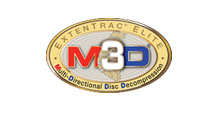
Spine Disorders
|
WHEN TO SEE A SPINE
SPECIALIST You should
seek the advice of a spine specialist if neck or back pain persists for more
than two weeks or if it is progressive in intensity and/or distribution. You
should seek immediate healthcare attention if neck or back pain occurs as the
result of an injury or if it is associated with serious illness and/or a high
fever. Additional signs and symptoms which warrant prompt medical attention
include:
Most people
ignore the signs and symptoms of spinal stenosis until they become fairly
severe. They believe that the pain, the stiffness and the radiating pain are
all consequences of aging or “getting old�. If symptoms interfere with activities of daily living (ADLs)
they are never to be considered normal.
SCREENING AND DIAGNOSIS Spinal
stenosis can be difficult to diagnose because its signs and symptoms are often
intermittent and because they resemble those of many age-related conditions. To
help diagnose spinal stenosis and rule out other disorders, your doctor will
ask about your medical history and perform a physical exam that may include
checking your peripheral pulses, range of motion, and leg reflexes. The doctor may use a variety of approaches to diagnose spinal
stenosis and rule out other conditions.
|
















